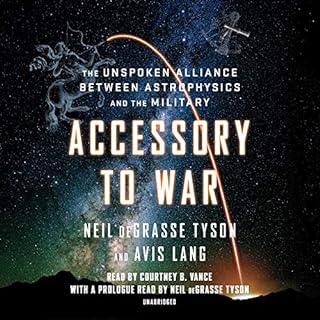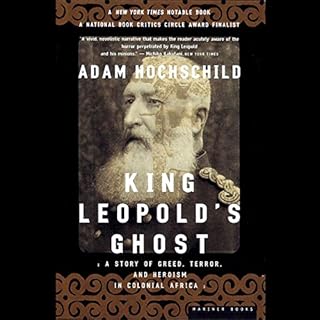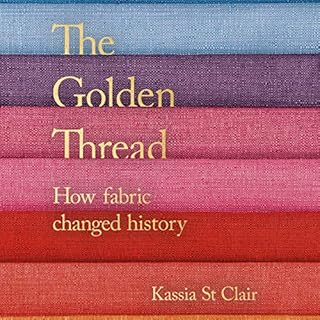Noah L.
- 6
- reviews
- 5
- helpful votes
- 12
- ratings
-
Just Mercy
- A Story of Justice and Redemption
- Written by: Bryan Stevenson
- Narrated by: Bryan Stevenson
- Length: 11 hrs and 11 mins
- Unabridged
-
Overall5 out of 5 stars 265
-
Performance5 out of 5 stars 233
-
Story5 out of 5 stars 232
Bryan Stevenson was a young lawyer when he founded the Equal Justice Initiative, a legal practice dedicated to defending those most desperate and in need: the poor, the wrongly condemned, and women and children trapped in the farthest reaches of our criminal justice system. One of his first cases was that of Walter McMillian, a young man who was sentenced to die for a notorious murder he insisted he didn’t commit. The case drew Bryan into a tangle of conspiracy, political machination, and legal brinksmanship—and transformed his understanding of mercy and justice forever.
-
5 out of 5 stars
-
Heart wrenchingly fascinating
- By Andrea on 2019-06-27
- Just Mercy
- A Story of Justice and Redemption
- Written by: Bryan Stevenson
- Narrated by: Bryan Stevenson
Tragic, heartening tale of a lot of decent folks
Reviewed: 2019-05-13
This is an absolute must-listen for any aspiring lawyer, paralegal or even people with an interest in criminal justice: a haunting, often-depressing, occasionally-uplifting series of real stories about real people trying to fight against a system hell-bent on accosting, punishing and imprisoning them. Stevenson truly is an iconic lawyer, and a stellar example for any new legal professional of what a driven person with a talent for listening, social justice and perseverance can achieve. He presents a litany of stories, using one particular case of a condemned death row inmate as the main narrative, all of which focus on the harsh unfairness and blindness (unintentional AND intentional) of a criminal justice system stacked against black people in America, and he does so in a very accessible (i.e. no legal jargon) and humanist-minded way. Stevenson is highly talented at telling stories from a personal perspective, and emphasizing the humanity not just of those condemned to prison or death unfairly, but the humanity of their families and their communities. In many respects, this isn't just a story about certain specific "criminals", but the impact of unjust systems on communities; what happens when the body of laws that govern a nation look for an excuse to punish *everyone* of one skin colour.
Admittedly, this is a book that shows again why authors should not read their own stories: Stevenson's narration is fine, but the audio quality is a bit subpar and some of the stories could have used a professional voiceover to give them the proper gravity (though for some others, like the chapters on child imprisonment or imprisoning mothers for miscarriages, Stevenson has a talent for emphasizing the tragedy).
Nonetheless, this is an excellent story. Stevenson is a highly capable narrator and an even better humanist, and the book is an eminently readable look at the cruel and sadly-not-unusual pressure that a broken system can inflict on others. Highly recommended for anyone with an interest in law, social justice, or even just how to speak to people who have so often gone unheard.
Something went wrong. Please try again in a few minutes.
You voted on this review!
You reported this review!
-
Ignition!
- An Informal History of Liquid Rocket Propellants
- Written by: John Drury Clark, Isaac Asimov - foreward
- Narrated by: Jonathan Todd Ross
- Length: 9 hrs and 19 mins
- Unabridged
-
Overall4.5 out of 5 stars 18
-
Performance4.5 out of 5 stars 13
-
Story4 out of 5 stars 13
Ignition! is the story of the search for a rocket propellant which could be trusted to take man into space. This search was a hazardous enterprise carried out by rival labs who worked against the known laws of nature, with no guarantee of success or safety. John Drury Clark writes with irreverent and eyewitness immediacy about the development of the explosive fuels strong enough to negate the relentless restraints of gravity. The resulting volume is as much a memoir as a work of history, sharing a behind-the-scenes view of an enterprise that eventually took men to the moon.
-
3 out of 5 stars
-
HIlarious, dense read
- By Noah L. on 2019-05-13
- Ignition!
- An Informal History of Liquid Rocket Propellants
- Written by: John Drury Clark, Isaac Asimov - foreward
- Narrated by: Jonathan Todd Ross
HIlarious, dense read
Reviewed: 2019-05-13
For any aficionados of chemistry, or those who always carry a chemistry textbook, this book is an absolute must-have: a deep, genuinely funny look at a niche topic that'll get you every dollar worth. For everyone else... be prepared to get lost. I only have a Grade 11 chemistry background, as well as a fair bit of hobby science, but even I found myself looking back and forth between wikipedia pages to keep up with the chemical abbreviations and compound names. It's a lot to take in, and a lot of the time I found myself wondering "Wait, what does that mean again?"
That said: even with my being almost totally lost by Chapter 8, I enjoyed it. I find it hard to give a positive review to something I didn't *really* understand, so note that despite the 3-star rating, if you can keep up, this book is excellent—I'm strictly speaking in the context of how much I "got". Still, even if I didn't grasp most of it, some of the genuinely witty lines and stories contained here are actually worth your money (keep an ear out for the bits on Chlorine Trifluoride, and the story about the generals testing one particular fuel by dropping a rat in a huge tank of it). Recommended for any rocketry nerds and science fans, as well as anyone with a university-level understanding of chemistry.
Something went wrong. Please try again in a few minutes.
You voted on this review!
You reported this review!
2 people found this helpful
-
Accessory to War
- The Unspoken Alliance Between Astrophysics and the Military
- Written by: Avis Lang, Neil deGrasse Tyson
- Narrated by: Courtney B. Vance, Neil deGrasse Tyson - introduction
- Length: 18 hrs and 38 mins
- Unabridged
-
Overall4.5 out of 5 stars 132
-
Performance4.5 out of 5 stars 102
-
Story4.5 out of 5 stars 100
In this fascinating foray into the centuries-old relationship between science and military power, acclaimed astrophysicist Neil deGrasse Tyson and writer-researcher Avis Lang examine how the methods and tools of astrophysics have been enlisted in the service of war. "The overlap is strong, and the knowledge flows in both directions," say the authors, because astrophysicists and military planners care about many of the same things: multi-spectral detection, ranging, tracking, imaging, high ground, nuclear fusion, and access to space. Tyson and Lang call it a "curiously complicit" alliance.
-
5 out of 5 stars
-
Mind Melting.
- By TK on 2018-09-18
- Accessory to War
- The Unspoken Alliance Between Astrophysics and the Military
- Written by: Avis Lang, Neil deGrasse Tyson
- Narrated by: Courtney B. Vance, Neil deGrasse Tyson - introduction
Interesting, thorough examination that drags a bit
Reviewed: 2019-05-13
NDT has a fairly strong "little" book here, and if you're interested at all in the history of military science, you'll find enough here to do you well. Overall, I enjoyed it, and while there were some moments where I seriously lost track of what the author was on about, the narrator is engaging enough and the substance of the stories are interesting enough that I usually could get back on track. deGrasse Tyson isn't a bad historian either: while he neglects to mention his sources and context a bit too often for my tastes, he at least pulls from a wide range of them (including not just eurocentric ones) and the sheer breadth is surprisingly large.
I do have to say of NDT's writing style though that there are moments where the word-to-word prose drags—needless descriptions of minute details, overly-technical tangents not really relevant to his point, and overall a bit too much bloat for what NDT's trying to say. It's also a bit hard to find the themes the author is trying to draw out of every story he tells, from the effect astrology had on Victorian England and Nazi Germany, to the rapid development of the optical and then mechanical telegraph. The stories are interesting and they're presented in a compelling way, but it could have used another pass in editing to cut it down—it's more difficult than it should be to see why we're learning any of this.
Overall: it's a good book, a bit too long and full of unnecessary details, but the overall subject and the enthusiasm with which it's presented will get even non-fans most of the way through. Recommended for anyone with an interest in military history or the history of science.
Something went wrong. Please try again in a few minutes.
You voted on this review!
You reported this review!
-
King Leopold's Ghost
- A Story of Greed, Terror, and Heroism in Colonial Africa
- Written by: Adam Hochschild
- Narrated by: Geoffrey Howard
- Length: 12 hrs and 34 mins
- Unabridged
-
Overall4.5 out of 5 stars 64
-
Performance4.5 out of 5 stars 50
-
Story5 out of 5 stars 50
In the late 1890s, Edmund Dene Morel, a young British shipping company agent, noticed something strange about the cargoes of his company's ships as they arrived from and departed for the Congo. Incoming ships were crammed with valuable ivory and rubber. Outbound ships carried little more than soldiers and firearms. Correctly concluding that only slave labor could account for these cargoes, Morel almost singlehandedly made this slave-labor regime the premier human rights story in the world.
-
3 out of 5 stars
-
I'm only critiquing the audio and not the story
- By Natalie on 2021-03-28
- King Leopold's Ghost
- A Story of Greed, Terror, and Heroism in Colonial Africa
- Written by: Adam Hochschild
- Narrated by: Geoffrey Howard
Fantastic, narrative history of a horrifying past
Reviewed: 2019-05-13
Without qualification, Hochschild is one of the most exceptionally talented historians of his day, and here he has an presented a highly listenable, down-to-Earth and horrifying look at a past that a lot of people have tried to keep buried. He presents a deep dive into the Congo Free State, and its earned status as probably the single biggest tragedy and devastation of the colonial, imperialist mindset that ran Europe during the 19th and early 20th centuries. He draws extensively from primary sources, statistics, emphasizes African voices (so often silenced throughout history) wherever he can reliably find them, and trusts his audience enough to be horrified by the crimes of the CFS that he doesn't need to condemn them every fifth second. And he does this in a way that is genuinely informative for the reader, helps him tell the story that Leopold tried to keep silent, and shows us all how responsible history is conducted.
Perhaps his greatest talent is Hochschild's ability to look into the minds of twisted, corrupted men (Henry Morton Stanley and Leopold himself being the key figures) through their written words and actions. Listening to him dig into the twisted logic that drove these men to commit the abject crimes that they did paints a vivid picture of a system where—as long as you have money and cloak your words in those of a saviour—almost nobody will look at you twice.
The only two marks I'll knock off for the book are that the chapter marks are out of sync with the actual chapters, and the audio quality—being recorded almost 20 years ago—leaves something to be desired. Otherwise, Howard's voice is immediately grasping and his enunciation and tone gives this story the exact kind of narrator Hochschild presents: a measured, smooth tone that contrasts really well with the abject horror he's describing.
Otherwise, this book is phenomenal. Revolutionary for narrative non-fiction, an excellent source for serious students of history, and a much-needed and welcome approach to making sure we don't forget, as Hochschild says, "one of the greatest human rights atrocities of the 20th century".
Something went wrong. Please try again in a few minutes.
You voted on this review!
You reported this review!
1 person found this helpful
-
Masters of War: History's Greatest Strategic Thinkers
- Written by: The Great Courses, Andrew R. Wilson
- Narrated by: Andrew R. Wilson
- Length: 12 hrs and 13 mins
- Original Recording
-
Overall4.5 out of 5 stars 47
-
Performance4.5 out of 5 stars 44
-
Story4.5 out of 5 stars 44
From Napoleon's revolutionary campaigns to the way insurgency, terrorism, and nuclear weaponry have defined the nature of warfare in the 21st century, the results of military strategy have changed the course of history. These 24 thought-provoking lectures give you an inside look at both the content and historical context of the world's greatest war strategists. From the triremes and hoplites of ancient Greece to the Special Forces in 21st-century Afghanistan, strategy is the process by which political objectives are translated into military action.
-
5 out of 5 stars
-
Amazing piece of work
- By Anonymous User on 2019-12-25
- Masters of War: History's Greatest Strategic Thinkers
- Written by: The Great Courses, Andrew R. Wilson
- Narrated by: Andrew R. Wilson
Couldn't manage more than an hour
Reviewed: 2019-05-13
I can't put my finger on why I really, really disliked this lecture and its presenter. Maybe because he reveres the figures of the past to an insufferable extent and doesn't present them as neutral figures with context like a proper historian; maybe because he treats relatively simple concepts as grand ones needing to be extensively introduced (while still glossing over or not mentioning important details of the societies these generals lived in); maybe because he's just too animated and enthusiastic that he feels he needs to verbally worship men since his audience MUST be too simple to draw conclusions if he just presents the evidence.
I was hoping for a book covering historical battles and wars, and how the societies, tactics and technologies of the leaders influenced them. Instead I got an oversimplified, fawning biography, sent in an email blast from Thucydides' press agent. Not recommended.
Something went wrong. Please try again in a few minutes.
You voted on this review!
You reported this review!
-
The Golden Thread
- How Fabric Changed History
- Written by: Kassia St Clair
- Narrated by: Helen Johns
- Length: 11 hrs and 26 mins
- Unabridged
-
Overall5 out of 5 stars 21
-
Performance4.5 out of 5 stars 17
-
Story5 out of 5 stars 17
From the mummies of Ancient Egypt, via the silken dragon robes of Imperial China and the woollen sails of Viking longboats to the Indian calicoes and chintzes that powered the Industrial Revolution (and sparked more than one war), arriving finally at the lab-blended fibres that have allowed astronauts to moonwalk - fabrics, man-made and natural, have changed and shaped the world we live in. In 12 fascinating chapters, Kassia St Clair lays out an alternative history of civilisation and human creativity. Wittily written and compellingly argued, this book will change the way you see the world.
-
5 out of 5 stars
-
An excellent, highly listenable book
- By Noah L. on 2019-05-13
- The Golden Thread
- How Fabric Changed History
- Written by: Kassia St Clair
- Narrated by: Helen Johns
An excellent, highly listenable book
Reviewed: 2019-05-13
This is a supreme example of how a good writer can boil down a complex, esoteric topic and summarize it in a way that really grabs your attention. The book is highly accessible and surprisingly in-depth for something mentioned in the intro as "a few stories about fabrics": those stories include the centrality of silk to Ancient China's economy and its political machinations, the world-shaping power that cotton had on the European and American slave trade and global markets, and even how lace fabrics nearly bankrupted a nation. Hardly just a few stories, and it makes for a great interdisciplinary history book.
Also, unlike some less astute authors, St Clair is a capable historian: she pulls from primary sources, statistics of the day when available, and (importantly) provides context and mentions when a source may be unreliable or acting out of unexpected motivation. It's a lesson many historians should familiarize themselves with, as well as those seeking to write about history. She also points out the centrality of women to any story involving fabric (which is likely one reason why the importance of it to world history is often glossed over).
The only points I'll say I'm not a fan of is that the audio quality is just a bit scratchy, and in general I don't care for starting all your subheadings with quotes--snappy titles are usually enough for me.
None of that overly detracts from the book: it's a very accessible, well-structured and capable narrative history, looking at a topic so often underappreciated. Highly recommended for any fan of history, fashion major, or just someone looking for a brief guide to something they may have never truly appreciated.
Something went wrong. Please try again in a few minutes.
You voted on this review!
You reported this review!
2 people found this helpful






